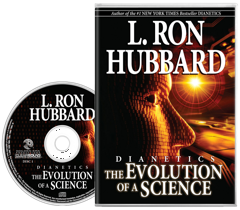Dianetics - An Overview
Dianetics - An Overview
Blog Article
The Greatest Guide To Dianetics
Table of ContentsLittle Known Facts About Dianetics.Dianetics for DummiesDianetics - QuestionsThe Ultimate Guide To Dianetics
I couldn't ever before not desire to get anything that comes to mind for you- if it was otherwise, I wouldn't be resting here with you, doing this. I not only might never ever have an issue, or otherwise wish to listen to something that enters your mind for you, however I'm totally anxious to know every idea, every idea, every image or feeling that emerges or manifests for you- do not ever before think otherwise, and if somehow you do, please just allow me know! Occasionally, you may have an idea, and picture, concept or case pop up that does not seem to answer the inquiry, or associate with it, yet however, always do tell me about it, and as we proceed, the relevance will arise for you.This is integral in the basis of processing, and the topic of this discussion: the basic functions of the therapist and the customer: The standard role of the counselor is, as opposed to "standard training", not to regulate, which implies to enforce and/or hinder, however to instead work from the basis of EMPOWERING THE CUSTOMER.

The Of Dianetics
John Mcmasters expressed this standard truth splendidly well in one of his talks on Power processing, where he describes exactly how he was asked what this "special flair" was that he had for giving such wonderful sessions; he had to consider that for a moment, and detected that it was what he had not been doing, along with what he was doing: he had not been assessing, evaluating, computer, or actually, producing any type of thoughts, not to mention verbal expressions, after providing the command and while awaiting the computer to complete their solution to their complete satisfaction; he was, merely and just, being existing with the computer, and totally interested.
The role of the therapist, showed; that was his "special flair". I have had my own experience which showed me this well, extremely at an early stage in the game. In 1982, having recently finished my training and teaching fellowship on New Era Dianetics, I was running this on a PC, and there was a point in the session where (being a little bit wet behind the ears not yet having lots of hours under my belt as an expert auditor) the PC appeared to be "taking also long" to share anything verbally after I provided him a command.
This key became one of the most useful contribution that John ever made to the subject of therapy or bookkeeping (Dianetics). In my modest viewpoint, it is the best contribution that any individual has actually ever made to these subjectsthe application is completely non-judgemental, non-evaluative, and useful link lacking any pointer, recommendations or opinion.no preconditioned schedule for individuals, or 'degrees' that they have to do
In Scientology we prided ourselves on not examining for people. All that actually meant was that the auditor did not VERBALLY examine for the Computer in session.
See This Report on Dianetics

Anyone who had ever before seen John audit could not aid yet discover an one-of-a-kind quality in his auditing."The customer's fundamental function is to be there with the function of relocating in the direction of their spiritual objectives, and to freely and completely express and experience whatever materializes for them in responding to the concerns and implementing the instructions in the handling.
This is something to procedure as needed. However additionally, people frequently have prior experience and/or brainwashing in auditing/processing which, in some ways, and to some degrees, actually misdirects them into perspectives, concepts and behavior patterns that stop the full realization of these roles, therefore they will often tend to inhibit the expressing of what comes to mind, as in the examples provided over. * The very first, and maybe primary instances of mis-indoctrination causing much less than completely smooth and efficient sessions, can be located in certain aspects of the training regimens, or "TR's":"TR's" are commonly a person's very first, or at the very least early, experience in Scientology, and while I will certainly take place to describe what I see as the problems in idea and technique, nevertheless, tend to be substantially restorative, done as they are offered (Hubbard firmly insists that "TR's are not processing, they are training", but factually, they are both handling AND training)
Alan Walter Homepage made comparable observations, and enhanced these with his "Visibility Processes". There is no "flunking", and no denial of the reality of this being processing. The focus, as it ought to be, is on experiencing the other person's presence. All the manifestations which obtain a "flunk" in doing "TR-0" are just the being's efforts to stand up to the other individual's existence, and as opposed to being harassed and nagged with "Flunk", which enforces "failure!" on the being, one just needs to be motivated to "stick their feet in the water a little much deeper", to increasingly restore view website their ability and willingness to totally share and experience "being right here", or "visibility", with others.
A Biased View of Dianetics

Report this page